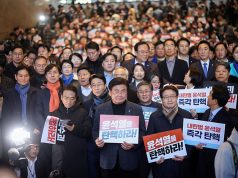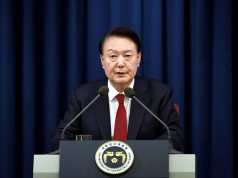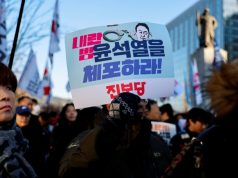MANILA – President Rodrigo Duterte’s act placing Mindanao under martial law has triggered a series of questions, many pertaining to the legality of his actions. Is there a sufficient basis for placing the entire Mindanao under martial law? Can the President’s act be reversed? The Constitution detailed a system that addressed abuses under our previous experience under the Marcos dictatorship.
The Constitution gives Congress a checking role. Article VII, section 18 of the Constitution in part provides:
…Within forty-eight hours from the proclamation of martial law or the suspension of the privilege of the writ of habeas corpus, the President shall submit a report in person or in writing to the Congress. The Congress, voting jointly, by a vote of at least a majority of all its Members in regular or special session, may revoke such proclamation or suspension, which revocation shall not be set aside by the President. Upon the initiative of the President, the Congress may, in the same manner, extend such proclamation or suspension for a period to be determined by the Congress, if the invasion or rebellion shall persist and public safety requires it.
The Congress, if not in session, shall, within twenty-four hours following such proclamation or suspension, convene in accordance with its rules without any need of a call.
The Supreme Court may review, in an appropriate proceeding filed by any citizen, the sufficiency of the factual basis of the proclamation of martial law or the suspension of the privilege of the writ or the extension thereof, and must promulgate its decision thereon within thirty days from its filing.
The Supreme Court had an opportunity to interpret these provisions. In Fortun v. Macapagal-Arroyo (G.R. No. 190293, March 20, 2012), the Court held that the President and Congress share the power to proclaim martial law or suspend the privilege of the writ of habeas corpus:
1. The President’s proclamation or suspension is temporary, good for only 60 days;
2. He must, within 48 hours of the proclamation or suspension, report his action in person or in writing to Congress;
3. Both houses of Congress, if not in session must jointly convene within 24 hours of the proclamation or suspension for the purpose of reviewing its validity; and
4. The Congress, voting jointly, may revoke or affirm the President’s proclamation or suspension, allow their limited effectivity to lapse, or extend the same if Congress deems warranted.
The Court went on to explain that the President and the Congress act in tandem in exercising the power to proclaim martial law or suspend the privilege of the writ of habeas corpus. They exercise the power, not only sequentially, but in a sense jointly, since after the President has initiated the proclamation or the suspension, only the Congress can maintain the same based on its own evaluation of the situation on the ground, a power that the President does not have.
The refusal of Congressional leaders to convene is in clear violation of the Constitution. To issue statements that they agree with the imposition of martial law does not absolve them of the duty to convene. According to Fortun, Congress must make its own evaluation of the situation “on the ground” and not based on the President’s intelligence reports. Worse, it insults the intelligence of the members of Congress who are assumed to obey the President. When the President declares martial law, Congress has a duty to check the basis of the exercise of that power. It should not function as an ally.
Congress’ refusal to convene to check the President leaves citizens with another remedy. The Supreme Court can now check whether there is a factual basis for declaring martial law. Whether the President (and Congress) will follow the Supreme Court is another matter altogether because the President has demonstrated contempt for judicial review.
*The author teaches at the UP College of Law.










